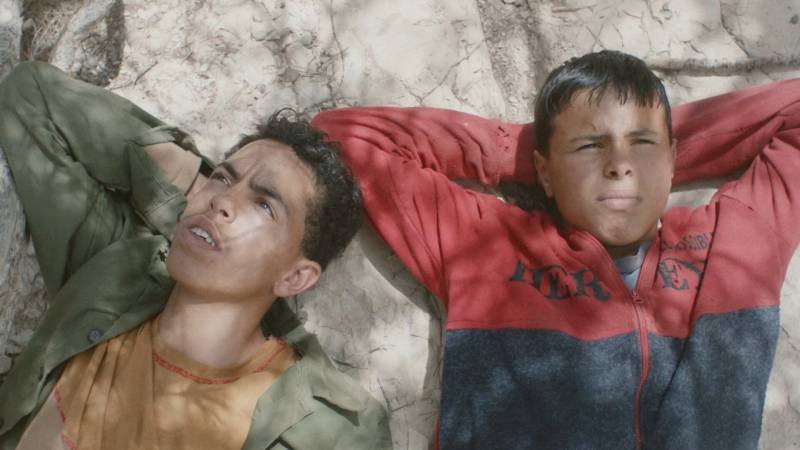




Now firmly established as one of the most influential film festivals in the Arab world, and with a worldly selection guaranteed to please all varieties of audiences, the 4th the Red Sea International Film Festival took place between December 5th and 14th in Jeddah, Saudi Arabia. DMovies has attended every edition of the event in loco and exclusively for you. The action returned to the Al-Balad, the charming old town of a city home to more than five million inhabitants, and this time with a purpose-built venue for the Souk (the large marketplace running parallel to the screenings and events). In the two previous editions, the activities took place at the Ritz-Carlton and the Red Sea Mall, located a few kilometres from the centre.
This year, the international jury was headed by the iconic Spike Lee. This is the third time the American director visited Saudi Arabia. The first one was more than 30 years ago, when the Kingdom granted him special permission to film Malcolm X (1992). He returned two years ago as a special guest. The other members of the jury were British-American actress Minnie Driver, American actor Daniel Dae Kim, Turkish actress Tuba Büyüküstün, and Egyptian filmmaker Abu Bakr Shawky (of filthy genius drama Yomeddine). In total, there were 16 films in the Main Competition, which is entirely devoted to Asian and African filmmakers.
…
.
Arab AND international?
With multiple strands and a lineup of 122 films from 85 countries, just how does the Festival ensure that the programme remains relevant to both Arab and international industry stakeholders and audiences?
The films are selected by Antoine Khalife (in charge of the Arab programme, and Film Classics) and Kaleem Aftab (international programme). After talking to Kaleem last year, we decided to have a word with Beirut-born, French-Arabic Antoine about latest edition of the event. He explains the eligibility criteria: “the theme of the film should be related to the Arab world. You have a lot of filmmakers living outside the Arab countries. Maybe they maybe have a foreign passport. For me the most important thing is the content. It is the topic of the film that qualifies it. We don’t really look to the passport of the director”.
He explains that such flexibility could lead to directors from anywhere on the planet being included on the Arab programme, while also mentioning one example: “The director of The Sand Castle [Matty Brown], which we showed this year in a gala, is American. But the cast is full of Arabs, such as Nadine Labaki and [Ziad] Bakri. And the story is about refugees on an island, and mostly spoken in Arabic”.
.
Flavours of Saudi Arabia
Naturally, a film festival shouldn’t exist without films from the hosting nation. Saudi Arabia is a very peculiar case study because the country banned cinemas until 2018, and did not have an industry at all until five years ago. They are beginning to develop a new language, a new sensibility. Saudi movies such as Norah (Tawfik Alzaidi, 2023) and Night Courier (Ali Kalthami, 2023) did extremely well in the international circuit, showing in competition in Cannes and Toronto respectively. This year’s programme also included several Saudi films, most notably Saify (Warl Abu Mansour) in the Main Competition. ‘The question is whether the newfound sensibilities are too esoteric for the rest of the globe, and if Saudi cinema could find a permanent place on the pantheon of world cinema.
Antoine opines: “Saudi films have pleased international audiences because they feature anti-heroes. The filmmakers like talking about the past, about what happened in the 1990s. These characters are very consistent. They have a very special vision, and that’s why I call them anti-heroes. Did you watch Saify? Did you see the protagonist? He’s not a hero. He’s a real loser! And last year we had Mandoob [Night Courier], and it was exactly the same”.

.
To be or not to be (French)?
Some Arab countries, particularly those of Northern Africa, are strongly reliant on French support for their existence. Congolese filmmaker Baloji told us last year, while attending the Red Sea: “African cinema depends on European funding, mostly French. If you don’t tell a narrative that pleases French people, you don’t have money”. His comment resonated this year, with three such films in the Main Competition: double-award-winning Tunisian Red Path (Lofti Achourd), Tunisian Aicha (Mehdi M. Barsaoui) and Algerian Bin U Bin, Elsewhere the Border (Mohamed Lakhdar Tati). Antoine comments: “I believe that having French sensibility and funding is not a problem. The most important thing is that these films are very strong”.
Egypt is very different from its neighbours. The country has a large and mostly indigenous industry, which is not dependant on international co-productions. Egyptian films this year included award-winning Snow White (Taghrid Abouelhassan), award-winning Seeking Haven for Mr Rambo (Khaled Mansour) and Abdo & Saneya (Omar Bakry). Antoine believes that this is a recent development: “They used to do it [work with the French] a lot more in the past, with Youssef Chahine and Yousry Nasrallah. Maybe the subjects now are too local and not exportable enough. Just maybe”.
.
The winners
Below is a list of the winners in the Main Competition of the 4th Red Sea International Film Festival, as selected by Spike Lee’s jury. Just click on the film title in order to accede to each individual review. There is a big synergy this year: our dirty favourite movies coincided with the award winners:
…
.
You can read our full coverage by clicking here. In total, we published 28 pieces. This includes all the award-winning films in the Main Competition, and many more across various sections..






